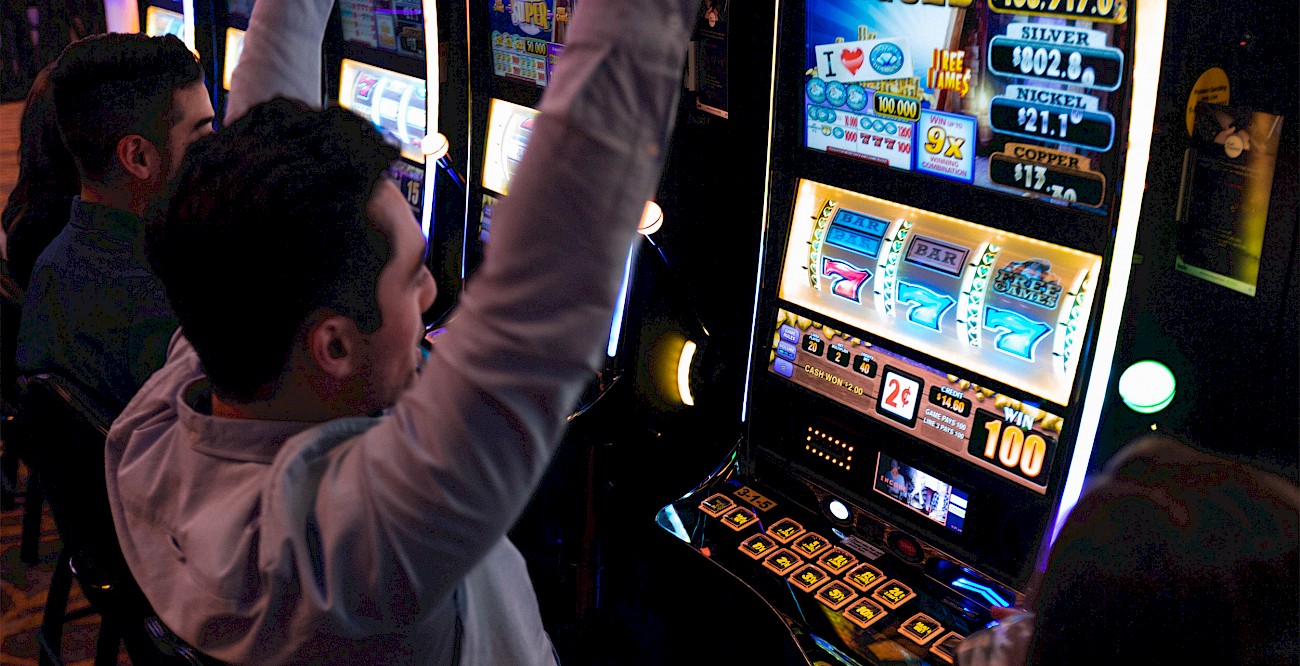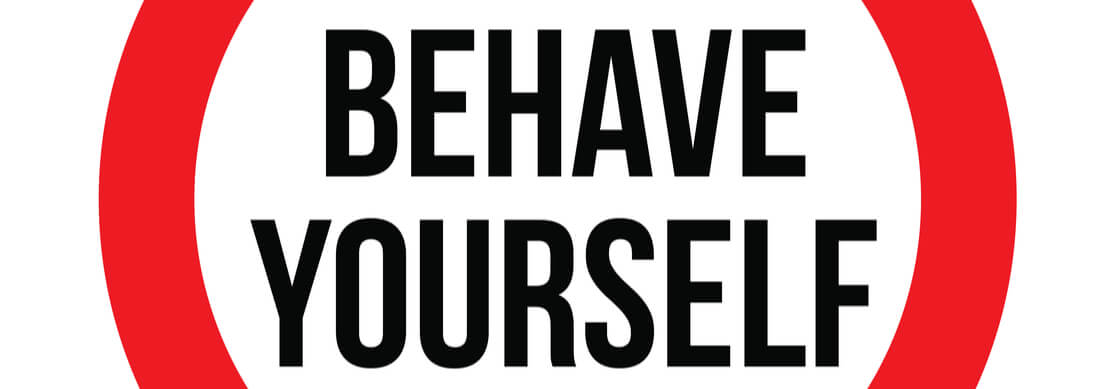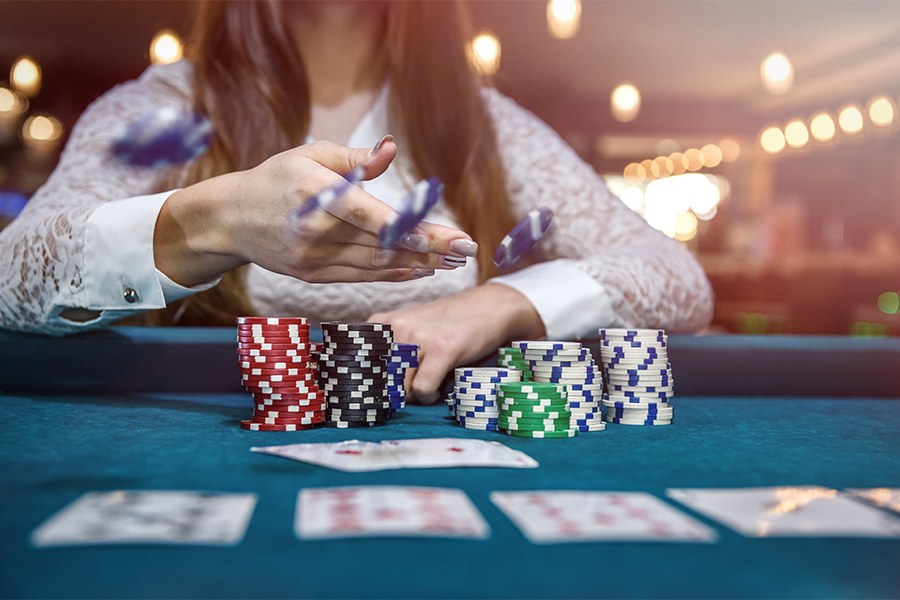Proper Casino Etiquette
Would you wear white to someone’s wedding? How about wearing a scarlet to a funeral? No, of course not! Doing so goes against common etiquette, and you’d be sure to draw attention to yourself. Well, did you know that there is also proper casino gambling etiquette to follow? Keep reading this guide, and we’ll show you exactly what kind of decorum is expected of gamblers.
For instance, one of the particular casino etiquettes is paying specific attention to your attire and dress. Before stepping on the floor for the first time you need to know that particular brick-and-mortar casino’s dress code. If you’re not dressed appropriately, casinos can turn you away from the entrance itself. Understanding the Importance of Casino Etiquette When people are socially interacting with other people, behaving appropriately for the occasion is very essential. Having proper etiquette will give a person the needed self-confidence and image in various situations.

1. Dress for the Occasion
Rolling up to a casino while wearing crocs and cargo shorts might earn you some snide glances from other gamblers. You might even be denied entry to the casino if they have a dress code in place. To be on the safe side, we recommend dressing business casual. This includes collared shirts for men and dressy blouses for women. Don’t wear sandals, and never wear torn or dirty clothing. Keep in mind that the casino you frequent may have different dress standards during the day and night.
2. Keep Your Cool
It’s easy to get carried away while playing for real money. Just keep in mind that it’s frowned upon to yell in a casino. If you just scored a huge win, it’s totally fine to be excited. Let’s just try to keep the jumping for joy at a minimum, shall we?
3. Table Manners
Don’t take a seat at a table unless you are ready to play. If you’re there to give your friend some support, you can stay standing behind the table. While playing at a table, don’t use your phone. Step away if you need to take a call.

4. Tipping
It isn’t mandatory to tip in a casino, but it is a polite way to thank dealers for their work. Some gamblers always leave a tip, which is typically between 10% to 15% of the buy-in amount. Others prefer to leave a percentage of their winnings, usually 1% to 5%.
5. Common Courtesy
Even if you are frustrated with the outcome of a game, don’t take it out on fellow players or the dealer. If you think the dealer has made a mistake, simply bring it to their attention.
6. Roulette Etiquette
When you join the roulette table, ask for chips. These special chips don’t have values corresponding to their colors. Rather, their colors just separate you from the other players. When you’re finished, cash out your roulette chips for casino chips directly at the table.
Before placing a bet, wait until all of the previous round’s bets have been paid out or cleared. The dealer will open up the table for betting once it’s clear, and you’ll have about 1 minute to make your new wagers.
Do NOT past post! Past posting is when a player changes their bet after the roulette croupier has closed the betting window. In the best-case scenario, your bet will be voided. In the worst case, you may be asked to leave.
7. Blackjack Etiquette
Make sure you know the proper blackjack hand signals before playing. This will eliminate any confusion on your end of the dealer’s end. These are the symbols to keep in mind:
Proper Casino Etiquette Meaning

Some other blackjack etiquette guidelines to keep in mind include:
- When watching a game of blackjack, observe from afar. By hovering over players, you risk distracting or agitating them.
- When placing additional chips, set them beside your original wager instead of on top.
- If your cards are dealt face up, you can’t touch them. If they’re dealt face down, you may touch them with one hand.

8. Poker Etiquette
Casino Poker Etiquette
While playing poker, don’t bet out of turn! Wait until the person to your right has acted. You should also be sure not to toss your chips into the pot. Instead, place your wager directly in front of you. The dealer will check to ensure that your bet is correct, and then scoop it into the pot himself.
Protect your cards at all times. If another player’s cards get intermingled with yours, your hand will be declared dead.
Don’t hold up the game! Poker is a relatively fast-paced game, and you shouldn’t spend too much time agonizing over every decision. If you feel like you don’t have a handle on how to play poker, consider playing online. Practice will boost your confidence, thus helping you make quicker decisions at a real poker table.
9. Slot Machine Etiquette
Even though playing slot games is usually a solo venture, there are still etiquette procedures you must follow! For instance, many gamblers place a hold on their slot machine while they take a short break. Before sitting at an empty machine, check to make sure that it isn’t being held by somebody else.
If you need to take a break, don’t hold the machine for more than 15 minutes. And, while you’re on a break, don’t leave your credits unattended!
If the casino is busy, don’t play multiple slot machines at once, as this isn’t fair to other players.
Playing by Your Own Rules
What if all of these casino etiquette rules sound like a load of poppycock? What if you want to playgambling games in your pajamas, jumping for joy when you win? Online gambling could be a great choice for you.
At Bob Casino, you don’t have to worry about adhering to any etiquette rules. Wear whatever you’d like, and playonline casino games wherever and whenever you’d like. Our huge game library includes a giant selection of slot machines as well as table games. You can even experience the thrill of a live casino online! The games in our live section include online roulette and blackjack, among others.
Ed. note: For those who might have missed it before, we're reprising Robert Woolley's series of articles for poker players who are new to live poker. The series is great for newcomers, and likely useful as well to those with experience playing in casinos and poker rooms.
'The guy who invented gambling was bright, but the guy who invented the chip was a genius.'
That pithy sentence is usually attributed to Julius 'Big Jules' Weintraub, a big gambler who essentially invented the 'Vegas junket' for East Coast residents, though I have not been able to identify a reliable primary source for this quotation. Whoever said it was right — you can play poker with cash, but chips make the game far easier to manage.
Because chips are such a ubiquitous feature of poker, it's easy to accept their presence without much thought. But I think there's a lot that's worth knowing about poker chips before you sit down at a table full of them.
Chips and Money (A Complicated Relationship)
The first thing to understand is that chips are real money, just in a different form. This truth is simultaneously obvious and elusive. Weintraub's observation gets at how easy it is to forget it and to start treating chips as mere abstractions.
In The Biggest Game in Town — one of the most articulate and influential books ever written about poker — Al Alvarez mused, 'The chip is like a conjurer's sleight of hand that turns an egg into a billiard ball, a necessity of life into a plaything, reality into illusion. Players who freeze up at the sight of a fifty-dollar bill, thinking it could buy them a week's food at the supermarket, will toss two green [$25] chips into the pot without even hesitating if the odds are right.'
Successful poker players rely on their weaker opponents losing touch with the equivalence of poker-world chips and real-world money. As for their own relationship with that truth, however, strong players both remember and disregard it.
That is, you must keep in mind that playing badly and as a result losing $100 in chips is the same as setting a $100 bill on fire. But at the same time, you can't let the fear of losing your hard-earned money prevent you from investing your chips in the way that will be the most profitable.
But enough abstraction. Let's deal with the tangible aspects of poker chips, as they are used in casinos. All of the following points apply equally to both tournaments and cash games, with two exceptions, which I will note when we get to them.
Color Code

The dominant color of most poker chips is related to their denominations in a nearly universal way: $5 chips are red, $25 green, and $100 black. (If you're playing with chips above this, you're not likely to be new enough to poker to be reading this article!)
The exception is the $1 chip, which casinos order in a wide variety of color schemes, with either white or blue being the most common. Meanwhile tournament chips also do not usually follow this or any other consistent color pattern.
Stacking Chips
It is both courteous and strategically advantageous to keep your chips in neat stacks of 5, 10, or 20 chips each. This makes it easy for both you and other players to count or at least closely estimate how much you have on the table — a vital consideration in no-limit and pot-limit games.
You need to know at all times which opponents can 'stack' you (i.e., take all of your chips if you lose a big confrontation), or, conversely, how much you could potentially win from them. Players whose chips are in an unorganized heap, or in uneven stacks, or in which denominations are mixed together haphazardly, make this unnecessarily difficult.
Hiding Chips
For similar reasons, it is both against the rules and deeply unethical to hide one's largest-denomination chips from the view of other players.
If you play poker long enough, sooner or later you will encounter a dishonest player who carefully hides several black chips under or behind stacks of red chips. His goal is to get you to underestimate how much money he has in play. If, for example, you have $500 but see only $200 in front of the guy in seat four, you might be more inclined to call his all-in bet than you would be if you could see the six $100 chips he has stashed behind his stacks of red.
If you see somebody trying to hide his big chips this way, you not only may, but should point it out to the dealer. If you'd prefer not to risk being seen as a 'snitch,' you can step away from the table and tell a floor person about the problem.
Poker rooms have little tolerance for such 'angle shooting', because it upsets less-experienced players when they get deceived this way, and the casino does not want to lose them as customers.
Removing Chips
Once you put chips into play at the table, you cannot remove any of them until you remove all of them to cash out. That is, you can't pocket some of your winnings to ensure that you won't lose them, no matter how tempting it seems to do so. (I'll explain this in more detail in a future article when I address the whole subject of 'table stakes.')
Similarly, you cannot just give some of your chips to another player at the table, such as your spouse or best friend. If he or she needs more chips, they must be purchased from the casino. (You can give cash out of your pocket to another player, however.)
When Cash Plays
Most casinos allow at least some forms of cash to be used in poker games. The most common rule is that $100 bills, but no other currency, can be in play. However, a few casinos allow other denominations of cash to be used in poker games, while a few don't allow any cash on the table at all.
The only way to know the house rule on this point is to ask. When cash is in play, these bills are subject to the same rules about being kept easily visible to other players and not being removed from the table until you are leaving.
I think it will be obvious to you that cash never substitutes for or supplements chips in poker tournaments. In fact, poker tournament chips are usually explicitly marked 'NO CASH VALUE' so that nobody mistakes them for ones exchangeable for cash.
Personally, I prefer using just chips, so if I win a pot that has bills in it, I will ask the dealer or chip runner to trade me chips for them.
My reason for this idiosyncrasy — and I admit that that's all it is — is simply that when I look at chip stacks, either my own or other players', my brain tends not to register the bills the same way it does the chips. As a result, I've occasionally made large errors in estimating what amounts are in play. Apparently, other people don't have this problem. Do as seems best to you.
A possibly profitable tip: Many players, when in possession of a mixture of both chips and bills, will be much more reluctant to put the cash into the pot than the chips. This is precisely because of the psychological effect mentioned at the beginning of the article, in which chips lose their equivalence to 'real' money. For that reason, a player who is betting with his cash instead of or in addition to his chips is less likely to be bluffing than one who is betting with chips only, all else being equal.
Of course, like everything about poker 'tells,' this is not a universal phenomenon. But it's sufficiently common to make it worth paying attention to see if it's true about the specific players at your table, then using that knowledge to your advantage.
Casino Etiquette Guide
There a lot more to say — and to learn — about chips. In the next article, I'll explain the rules about making bets and raises with chips.
Robert Woolley lives in Asheville, NC. He spent several years in Las Vegas and chronicled his life in poker on the 'Poker Grump' blog.
Proper Casino Etiquette Sign
Tags
cash game strategytournament strategylive casino pokerbeginner strategyrulesetiquette